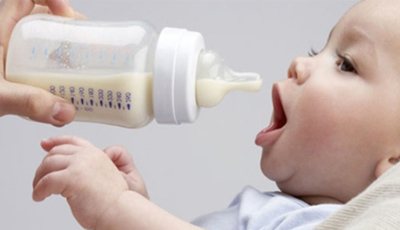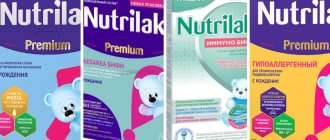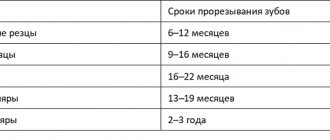After the birth of a long-awaited baby, every woman thinks about how she will feed the child. Pediatricians believe that the best food for infants is mother's milk. After all, it saturates the child with those microelements and nutrients that are so necessary for a growing organism, helps him adapt to his new environment. The elements contained in breast milk ensure the growth of all organs and tissues of the body.
But there are times when a mother cannot breastfeed her child. One of the primary reasons is the lack of lactation, the presence of serious serious illnesses in the mother, and the use of medications that can harm the baby. And then the issue of artificial feeding of the baby is decided. Today there is a very large selection of artificial breast milk substitutes. It is the mother who faces the question of which formula to choose, and how to determine whether the formula is suitable for the newborn or not. After all, she is nearby 24 hours a day, watching and caring for him. Due to the disappointing consequences of the formula’s reactions on the child’s body, it is necessary to select dairy products for a newborn for a long time. There are certain signs based on which we can make a conclusion about the baby’s condition after each meal.
Monitor the baby's condition
The pediatrician should select the most optimal formula for the newborn. But then it is the mother who closely monitors the condition of the baby and his nutrition. The mixture is not suitable for the baby and requires replacement in the following cases:
- Rash on the skin
- Colic, gas
- No weight gain
- Problems with the gastrointestinal tract
- Profuse regurgitation
- Taste rejection
All of the above indicators indicate that this milk formula is not suitable for a newborn, and therefore it should be replaced with another.
Below we will discuss these features in more detail, since it will be problematic for a young mother to understand that the formula is not suitable for a newborn without knowing the symptoms.
No, formula milk is not suitable for babies
Crying dissatisfiedly and refusing the bottle should definitely make the mother wary. If the baby doesn’t like the taste of the formula, it is quite possible that the composition is not suitable for him. In any case, this is definitely a reason to take a closer look at the child’s subsequent reactions.
If a newborn regurgitates a little more than a third of what he eats after each feeding, it’s too early to panic.
To understand whether a mixture is suitable, you need to try to objectively evaluate the entire range of characteristics.
If a child vomits “fountain” (pediatricians call this “uncontrollable vomiting”), the formula will need to be changed, if only because in this state of affairs the child’s body absorbs absolutely nothing.
A change in not only the color, but also the consistency of the stool is another bad sign. Slightly softer than usual stools and slight changes in color are within normal limits, but frequent diarrhea (especially in combination with vomiting) means that the child has an intolerance to some components of the milk formula.
Allergic reactions - redness, peeling, unusual rashes on the skin - are clear indicators that the baby’s diet is not suitable and needs to be changed.
Food allergies

After eating, the baby's skin became covered with a rash, cough and runny nose. The rash can be observed on the face, head, and other parts of the body. In some severe cases, hives may occur. This is how an allergic reaction to the mixture manifests itself. Therefore, when swaddling a baby, you should carefully examine his skin.
In any case, if allergic reactions occur, this is a sign that the newborn’s body did not like the proposed food novelty. Pediatricians advise observing the baby's reaction to a new type of formula for 72 hours. If the body adapts to the innovation, then the rash and itching of the skin go away. If the symptoms remain, you need to study the composition of the mixture and select the next one so that these components do not appear in the new one. Therefore, you should definitely contact your pediatrician for advice.
Refusal to wrap up
Mothers often show excessive concern for the baby’s health, not thinking that excessive use of clothing can affect health and appetite.
A constant excess of clothing leads to the following:
- the baby overheats, which is why he eats poorly;
- the child experiences constant discomfort due to the heat;
- the immune system deteriorates;
- the risk of infectious diseases increases;
- the baby is often capricious and shows dissatisfaction;
- there is pain in the child;
- gets tired quickly and sleeps constantly.

It is necessary to equip the baby with clothes in accordance with weather conditions. If there is a high temperature outside, it is recommended to refrain from excess clothing. Excessive care, as well as neglect, can lead to negative consequences, which will subsequently manifest themselves in the form of unpleasant symptoms or diseases.
Intestinal colic
After eating, the children, having had enough, fall asleep. In the case when the mixture is not suitable, the baby experiences colic, pain in the stomach, as evidenced by a piercing squeal, the child kicks his legs, cries endlessly during meals, and also after it. This is especially evident at night, the baby sleeps poorly, spins, and is capricious. Irritability is also characteristic of him during the daytime. These symptoms can also occur because the baby swallows too much air with the formula when sucking. Or he holds the pacifier in his mouth incorrectly. After each meal, it is necessary to hold the baby upright so that the accumulated gas comes out. This must be done within a quarter of an hour. To ensure that the newborn does not swallow air during the feeding hour, it is necessary to ensure that there is always liquid in the nipple.
How to understand that formula is not suitable for your child: symptoms and signs
Even inexperienced parents, in principle, can control the situation, since you can understand that the formula is not suitable for the child based on the baby’s well-being, behavior and mood.
Typical signs that the formula is not suitable for a baby:
- The first symptom of a food allergy is irritation, itching, rashes on the delicate baby skin. As diathesis develops, the baby's face turns red, but the rash can appear on any part of the body.
- Deviations in the baby’s body weight may become noticeable. If he does not gain the required grams per month, this is a reason to think about buying more nutritious food.
- Obvious signs relate to digestive disorders. In this regard, the baby may experience excessive regurgitation, vomiting with undigested food particles and an unpleasant odor. Additionally, intestinal disorders appear - this could be diarrhea, or, conversely, difficulty with bowel movements.
- Due to inappropriate nutrition, painful cramps in the child’s abdomen and bloating due to the accumulation of gases are common.
Formula milk is not suitable for a baby even when the child looks overly excited and irritated, throws tantrums and is capricious. The opposite reaction is weakness, lethargy, lack of interest in things that previously attracted him. In both cases, the reason is the same - inappropriate nutrition, as a result of which the baby physically feels unwell.

Underweight

Artificial babies have always been much larger than those children who are fed their mother's breast milk. Breastfeeding babies often get tired because it is hard work. Therefore, as soon as they satisfy their hunger, they immediately fall asleep. It is sometimes difficult for nursing mothers to estimate how much milk the baby has sucked from the breast. In this regard, it is easier for artificial babies: sucking liquid from a bottle does not require much effort, since the milk itself pours into the newborn’s mouth from the nipple. It’s easier for mom to track the amount of formula she drinks on the division scale on the bottle.
When weighing the child, you can see that there is no weight gain, or there is some, but it is small. Then you should think about why the mixture is not suitable for the body: either it is a lack of necessary enzymes, or the poverty of the gastrointestinal microflora. Such a baby can also be identified visually: over time, he becomes lethargic and weak if he continues to use this mixture. You should contact your pediatrician for appointments for the necessary tests and recommendations for selecting a medicinal mixture.
Artificial feeding
Modern infant formulas are developed using new technologies and are maximally adapted to the composition of breast milk. Today they produce various types of food that are suitable for different categories of children, including newborns, allergy sufferers, premature babies and babies with insufficient body weight, a child with a lack of any vitamins or elements.
Of course, no formula can replace mother's milk, but sometimes parents have no other choice. In this case, it is important to choose the right food for the baby and organize artificial feeding. When a baby does not eat formula or a baby refuses breast milk, he does not eat enough and does not receive important elements and nutrients that the baby needs for harmonious growth and development. In this article we will learn what to do if a child refuses formula.
First of all, it is important to understand why the child does not want to eat. Having determined this, you can eliminate the cause, and then the baby will eat properly and nutritiously, according to the norm and recommendations of pediatricians. Let's take a closer look at the reasons why a child refuses formula.
Disturbances in the gastrointestinal tract
A baby's stool more than three times a day indicates problems with the gastrointestinal tract. This manifests itself in the form of diarrhea, constipation, and discoloration. The mother may see white lumps in the stool; this mixture is not completely digested, or vice versa, the baby eats a lot, and the food is not fully processed. All this suggests that this diet is not good for the baby.
But there is no need to rush too much to abandon the mixture and replace it with another. This is a lot of stress for a small organism. It is necessary to monitor the baby and his nutrition. If the unpleasant symptoms have disappeared, then you can continue to feed the baby; if not, you should consult a doctor.
How to understand that the formula is not suitable for a baby
You can determine that formula is not suitable for your child by carefully observing the baby’s well-being. The baby’s body gives the mother signs indicating possible nutritional problems. The task of parents is to recognize the signs in time, establish the cause and take the necessary measures. If the baby is transferred to artificial feeding and consumes food that is unsuitable for the body, the following symptoms may occur:
- Allergic reactions. The allergy will manifest itself in the form of itchy areas, rashes, redness and peeling of the skin. Sometimes a runny nose occurs, the baby becomes restless and capricious.
- Digestive dysfunction. When an infant is transferred to artificial feeding, the infant's stool changes: it becomes pasty, crumbly, white-yellow in color with a characteristic putrefactive odor. These changes are considered normal. Uncharacteristically frequent and profuse regurgitation, changes in the nature of stool in the form of constipation or diarrhea are signs that the selected mixture requires replacement.
- The baby is worried about colic and gas. To make sure that the problem is in the diet, follow the feeding rules - it is recommended to hold the baby in a column after eating, give the bottle correctly, periodically place it on the tummy, and massage.
- Having problems gaining weight. Formula-fed babies gain weight well because they eat at regular intervals and in the required amount. If the baby does not gain weight or the weight gain is minimal, this indicates that the food is not completely absorbed in the intestines, is not absorbed by the body, and the dairy product should be changed.
- Changes in behavior appear. Sleep disturbances, increased excitability, frequent crying or, on the contrary, passivity are evidence of digestive problems associated with a changed diet.
Taste preferences of a newborn
It is rare, but it happens that a baby refuses to eat formula, simply because he does not like the taste of the milk formula. Then he doesn’t swallow it, he constantly spits it out and burps or closes his mouth when a bottle with a pacifier is brought to him.
In order to choose the right replacement for breast milk, you should definitely consult with your pediatrician. Many bottle-fed children have passed through the hands of the doctor; taking into account his experience, he will select a dairy product that is ideal for the baby and his growing body.
Choosing the right milk formula is a serious and responsible step that parents of formula-fed babies need to take. This is important for adequate nutrition of the baby and for his health. It is necessary to find the right approach to the selection of milk nutrition in order to avoid possible complications in the future and do everything possible for the child’s full growth and development. Taking into account all the factors stated above, it will be easy for parents to navigate the breast milk substitutes on the market that are offered by modern manufacturers.
Reasons for refusal
The reasons for capricious behavior are varied. The most common are:
- Lack of appetite. Formula is a product that is heavier for children's digestion than mother's milk. The artificial mixture lingers in the baby’s digestive system for up to 6 hours, which is due to the severity of its absorption. In this regard, formula feeding requires a clear dosage of dry concentrate and compliance with the interval between feedings.
How long the time period will be depends on age.
Up to 5 months, the interval between feedings is 3.5 hours. From 4.5 its duration increases by 30 minutes. After a year, the baby receives a significant share of complementary foods and is able to withstand a 5-hour gap between meals. It is worth noting that these indicators are indicative and do not take into account the individual characteristics of the child. If the mother notices that the baby is increasingly refusing to eat, it is worth increasing the interval between feedings. Too high a concentration of dry matter during cooking may result in refusal of subsequent feeding. It is contraindicated to use milk or cream to prepare baby formula.
- Tasteless mixture. Sometimes a child will not eat formula if he does not like its taste. Manufacturers produce products with additives and impurities that are not always to the taste of toddlers. This problem occurs especially often during mixed feeding or in the initial stages of switching to formula.











